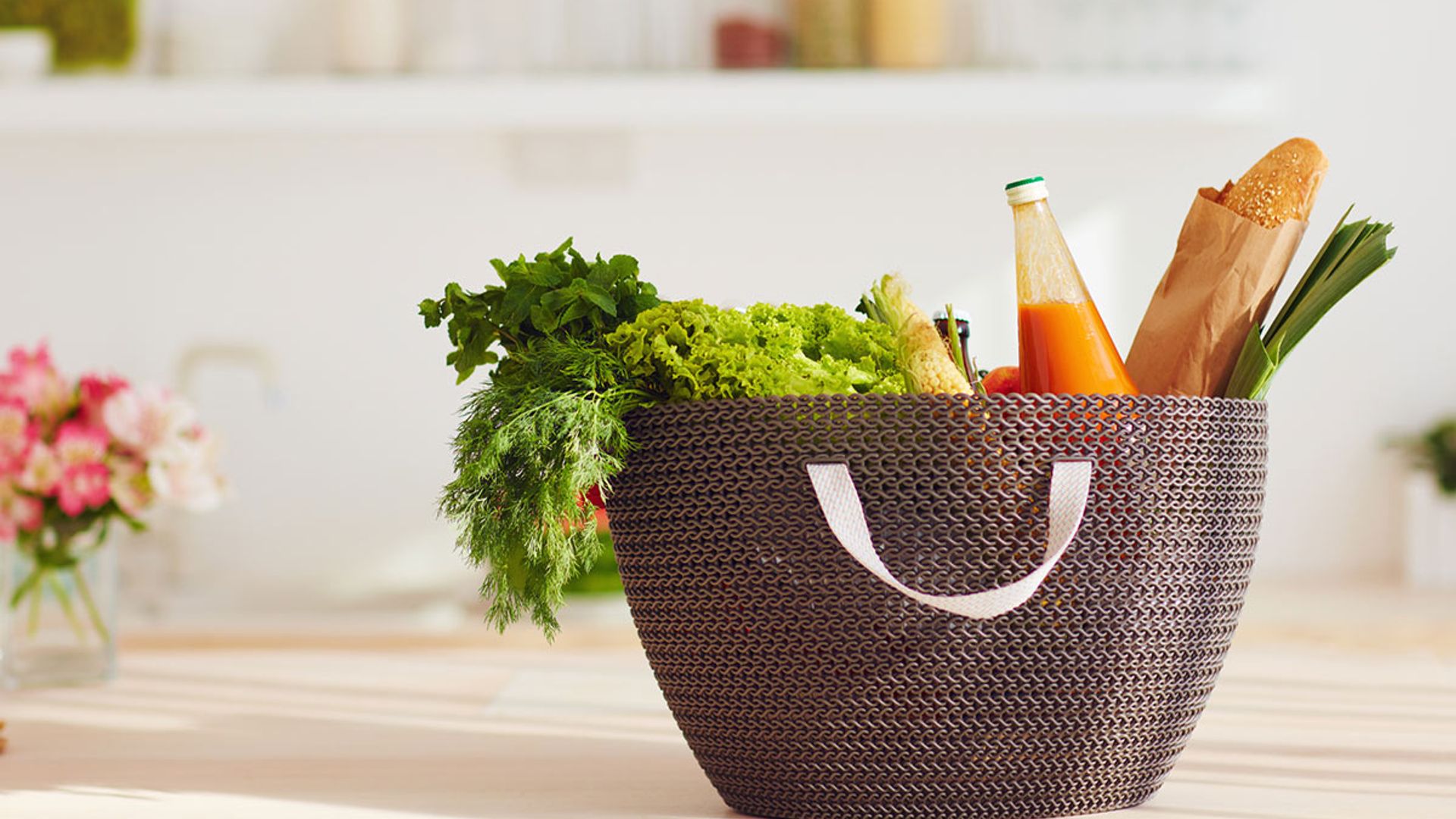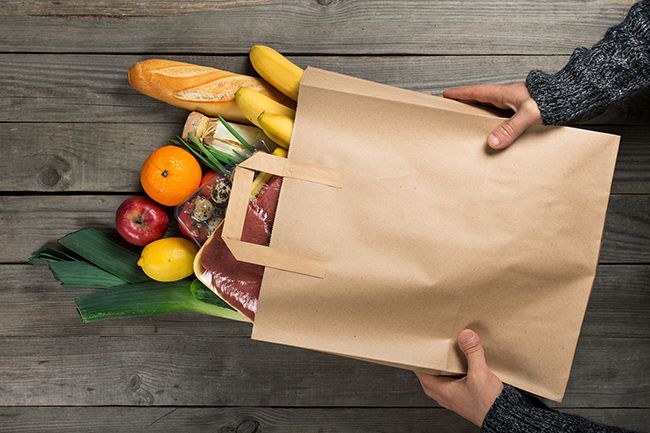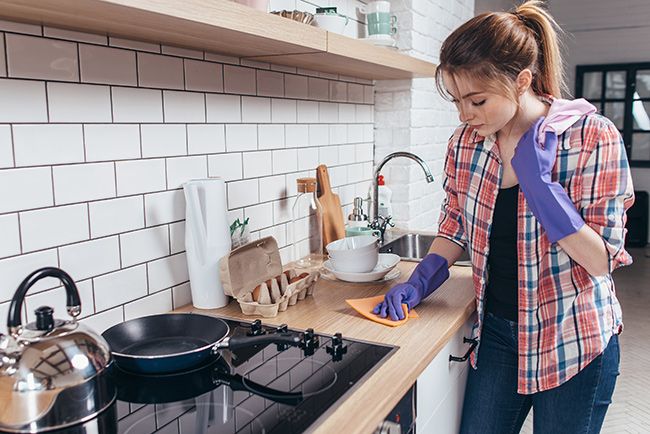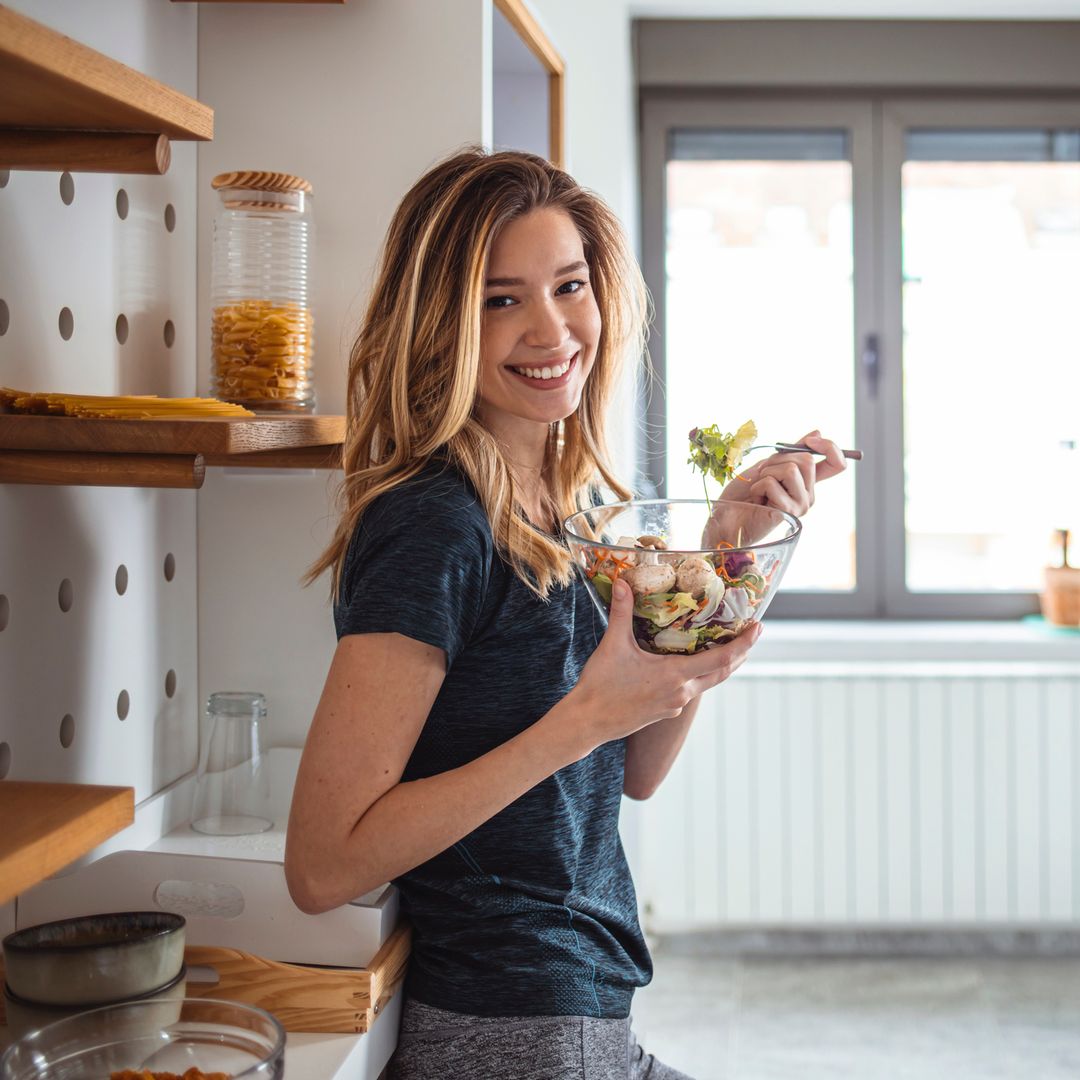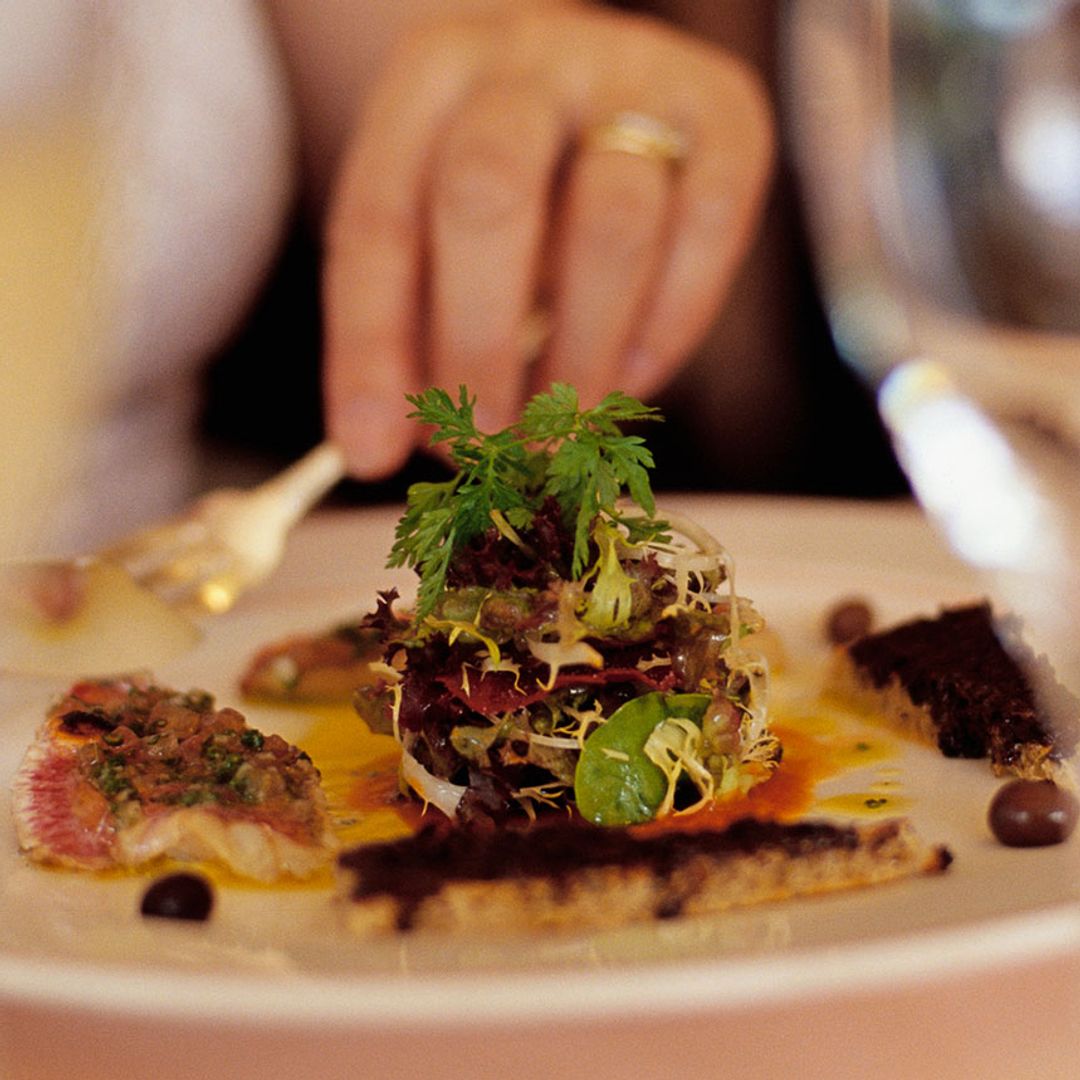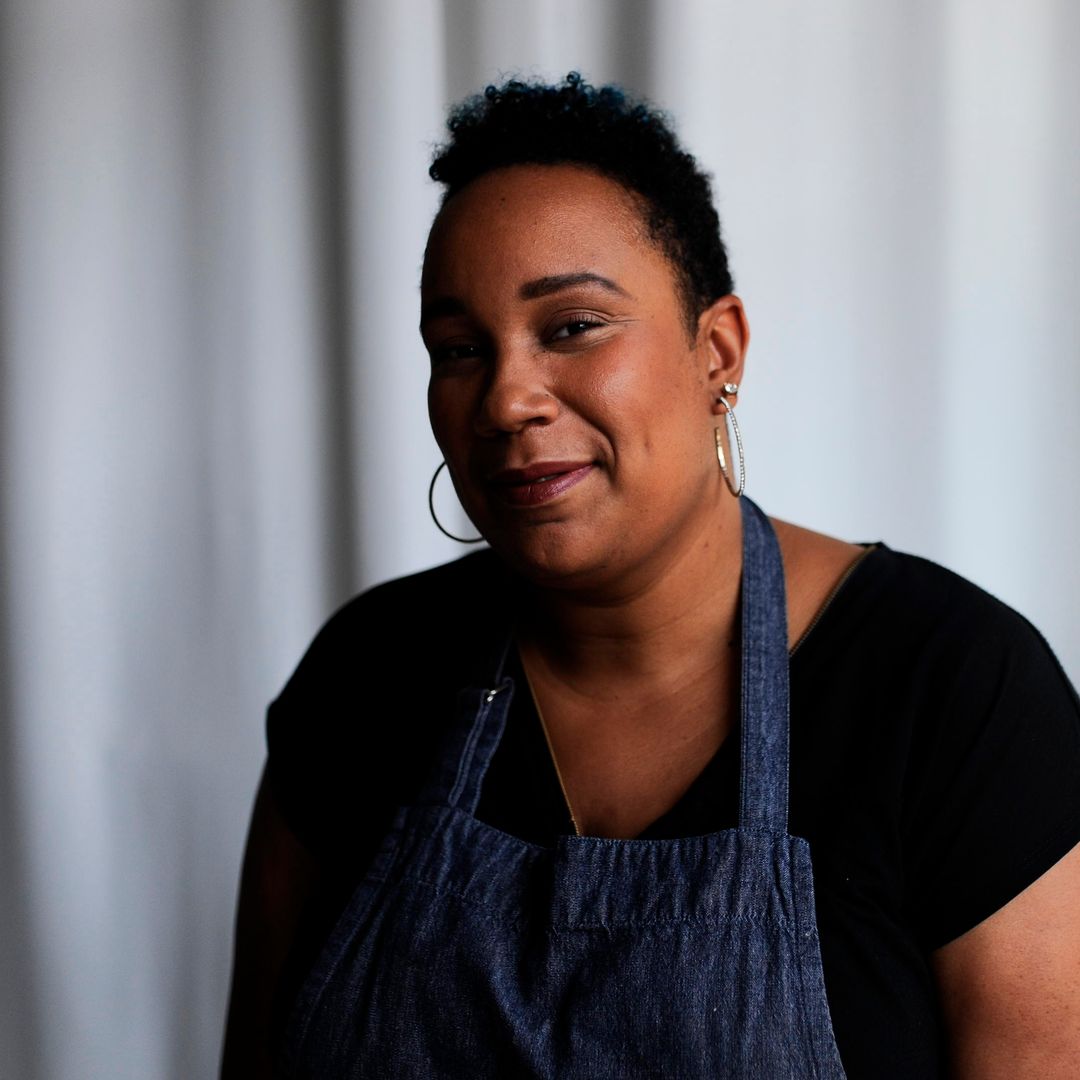Ok, so you've managed to do a food shop and your precious groceries are about to enter your house – or perhaps you were one of the lucky few to secure an online shop. We're all aware that coronavirus can live on surfaces and if you touch food, packaging and bags from outside your home, there may be a risk of infection. If like us, you're wondering what on earth to do with your food shopping before you eat it, this advice should help.
WATCH: How to manage coronavirus anxiety
Can I catch coronavirus from food or food packaging?
The government's food safety website states: "It is very unlikely that people can catch COVID-19 from food. COVID-19 is a respiratory illness and not known to be transmitted by exposure to food or food packaging." In its guidance for food businesses on coronavirus, the site adds: "The World Health Organization advises that the likelihood of an infected person contaminating commercial goods is low. The risk of catching the virus that causes COVID-19 from a package that has been moved, travelled, and exposed to different conditions and temperature is also very low."
MORE: Supermarket opening hours during lockdown - Tesco, Lidl, Asda and more
Many of us are wondering what to do with our food shopping
How long does coronavirus stay on surfaces for?
The World Health Organisation website states: "Studies have shown that the COVID-19 virus can survive for up to 72 hours on plastic and stainless steel, less than 4 hours on copper and less than 24 hours on cardboard."
How can I remove the virus from my shopping?
Dr James A Gill, Locum GP and Honorary Clinic Lecturer at Warwick Medical School,told HELLO!: "Disinfecting surfaces, and more importantly shopping, is thankfully relatively straightforward, with coronavirus being inactivated (note, you don’t actually kill a virus) by wiping over your groceries with alcohol wipes, 0.5% hydrogen peroxide bleach, or 0.1% sodium hypochlorite bleach."
"Food should be pretty safe then after one minute, assuming you’ve washed the cleaning chemicals off! Further reassurance can be taken from the food that you cook - with COVID19 being largely inactivated after cooking at more than 56C for over 15mins."
Diluted bleach is a good cleaning product to use for wiping food packaging
Is disinfecting shopping sufficient to kill the virus - and is it safe to do?
He added: "Realistically, shops are being exceptionally careful with their stock and how it is handled. Nevertheless, simply wiping over packages and boxes with a diluted bleached cloth should be sufficient - but we need to ensure we don’t accidentally consume any bleach ourselves.
"If someone is buying loose fruit and veg, again using an alcohol wipe would be safe for the food and shouldn’t cause any problems if a small amount is accidentally ingested. But if you really want to be double safe, slice up the veg and cook it into something nice for dinner."
MORE: Coronavirus: 10 ways to stay safe when shopping at the supermarket
"In the grand scheme of things, there are many things which are liable to cause people to worry in these unusual times. I’d suggest that worry over your food shouldn’t be high on that list. But it goes without saying we can make things worse for ourselves, as whilst bleach can be used on surfaces, it will damage clothes and is potentially harmful, so be careful. Similarly, different chemicals can interact, so don’t mix your household cleaners."
How can I avoid catching coronavirus at the supermarket?
The World Health Organisation states on their website: "When grocery shopping, keep at least 1-metre distance from others and avoid touching your eyes, mouth and nose. If possible, sanitize the handles of shopping trolleys or baskets before shopping. Once home, wash your hands thoroughly and also after handling and storing your purchased products. There is currently no confirmed case of COVID-19 transmitted through food or food packaging."
